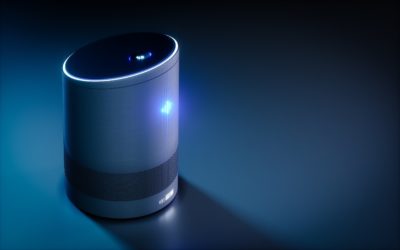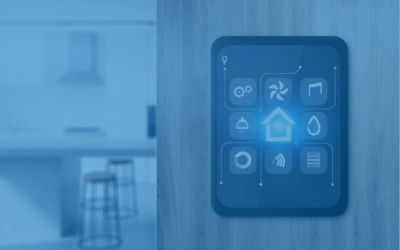When Programmable IoT and Cellular Merge, It’s Time to Spin Up Solutions
04
August 2020
by Shrey Fadia
Most IoT research and development over the last two decades has been focused on data acquisition, real-time edge and cloud applications and analytics, machine learning, data visualization, automated control systems, and other natural topics. Massive value has already been created in IoT and Industrial IoT (IIoT) but we are still only at the beginning of a world where billions of endpoints will be connected and will need to be secured (now more than ever).
An important and more subtle, even elegant transformation is underway in 2020, in a world where “programmable” IoT which makes it possible to simplify the placement, provisioning, and management of smart products using advanced cloud-based IoT management platforms, while also simplifying the connectivity between the edge and the cloud. With cellular IoT solutions coming online, and technologies including LTE-M, NB-IoT, Private LTE maturing, and mobile broadband become more available and affordable, combining “programmable networking” with programmable IoT is positioned to dramatically simplify implementations while also providing the assurances of a “full-stack” – “end-to-end” – and “ready to run” architecture enterprises can trust.
As we move beyond the PoC phase and continue to deploy not only large IoT systems (tens of thousands of smart streetlights, massive precision agriculture farms, track and trace solutions which enable management of hundreds of thousands of assets in motion), cellular IoT service becomes increasingly important. The general availability of powerful but inexpensive integrated chips, including SIM cards, is making it not only possible but affordable to embed connectivity and fully-fledged virtual machines, with dynamic runtimes across globally distributed enterprise systems.
Recently two companies – one expert in programmable IoT, delivered via the cloud (including Microsoft Azure), Cloud of Things, and one expert in programmable cellular connectivity for IoT services – converged their offerings and are rolling out simplified full-stack solutions that automatically work in nearly every country on the planet. The combination is actually quite simple itself – Cloud of Things, with their ready-to-run DeviceTone IoT Suite, including their recently introduced Genie starter kit has integrated their platform with monogoto’s secure global SIM network, building cybersecurity into all layers of the stack to address one of the greatest challenges today in the connected world.
With its multiple cellular profile container, the monogoto Secured IoT SIM has a globally redundant footprint in more than 170 countries and 2G, 3G, 4G, and LTE CAT-M1 connectivity federating more than 550 cellular networks.
They are making their combined offering available to smart product manufacturers who have been struggling with the complexity, risk, and friction associated with turning traditional electronics into connected and controllable devices and offering ongoing maintenance and management services remotely to end customers.
Cloud of Things DeviceTone IoT Suite, which includes its patented CloudSwitch technology, has been integrated with monogoto’s global cellular connectivity platform using the monogoto IoT SIM, making it simple to spin up and scale connected systems, including automatically and securely registering end-points to the network, whether those end-points are fixed or mobile, on land or at sea, are indoors or outdoors and include single or multiple sensors.
“For the first time, any company who wishes to develop and distribute smart products on a local or global basis can take full advantage of a real-time operating system using a single network with security embedded merged with a single platform based on Microsoft Azure’s worldwide infrastructure that can connect to any cloud,” said Avner Ziv, CEO, Cloud of Things. “After years of assisting product manufacturers, utility companies, and others in standing up proven IoT offerings, and following on our announcement with Microsoft last month, we selected monogoto as our exclusive global cellular connectivity provider given their reach, their innovation, cybersecurity approach, and their software-defined network architecture.”
The combination of the two platforms is enhanced with APIs which means smart product/utility companies and solution providers can benefit from a unified, customized provisioning, management, and maintenance environment, which drives up productivity and drives down cost. Given the open and configurable nature of both platforms, agility, scale, and cybersecurity are also dramatically improved.
“The alignment of vision became immediately clear with perfect timing given the air gap in the market for a truly end-to-end experience,” said Itamar Kunik, Co-Founder and CEO at monogoto. “Our teams have been working together on this joint solution which addresses the most difficult challenges the IoT community has been facing for years – the need for truly secure end-to-end services that are fully programmable, open and flexible, affordable and easily scaled up. Smart product companies, smart building and facilities operators, smart city solution providers, and more no longer need to hope their connected systems will work; with Cloud of Things and monogoto they have access to highly available real-time capabilities with edge and cloud control.”
Monogoto offers coverage in all major markets and is truly global, including their innovative “cellular suitcase” and the ability to roam into private networks like CBRS in the U.S. for service in remote places. The companies will announce an additional partnership based in the U.S. next month.
The companies are going-to-market in the U.S., Europe, and globally together. Cloud of Things will co-sell monogoto as part of their solutions, and monogoto will co-sell DeviceTone as a pre-integrated, tested, and secure IoT platform ready to run on monogoto’s network connecting with monogoto’s IoT SIM.
Supporting standard UICC (triple form factor), eUICC, and iUICC, the monogoto IoT SIM card guarantees compatibility to any IoT device/use case.
While the companies are developing a range of specific vertical and horizontal solutions, their first joint offering is an end-to-end prototyping package, which includes the DeviceTone Genie, a Ready-to-Run device launched last month and made available on the Microsoft Azure IoT marketplace, and monogoto‘s kit which includes zero code service creation for rapid flow formation and global IoT cellular connectivity. Designed specifically for the Connected Field Service market, the DeviceTone Genie Starter Kit that comes with a full-featured IoT environment is available for $99 and will come with a monogoto SIM and complementary support services.
“Now, these companies have always-on connectivity not only for the devices at the edge but for the smartphones and tablets which define the future of Connected Field Service, whether that service is delivered remotely or physically,” Ziv said. “On a single, secure network with global access, companies can contract for services with a single provider and world-class SLAs. This was extremely important in our decision to work exclusively with monogoto, given the needs of our customers and partners. Monogoto makes our relationship with Microsoft Azure even more valuable as every instance in every geography can now be connected over an advanced global network, where every device reports only to his designated cloud instance according to clients’ preferences.”
In addition to providing one of the world’s leading cloud service platforms, Microsoft Azure also contributes to the performance, agility, and security of the solution at the edge and in the cloud.
“We are extremely excited to have been selected by the Cloud of Things team, given their success over the past several years, in Israel and Western Europe,” Kunik said. “This revolutionary combination has limitless potential and gives innovators a fast, affordable and frictionless way to rapidly prototype, advance, sell and provide ongoing services with recurring and growing revenues, liberated from painful, expensive, and inflexible legacy IoT frameworks. We are especially excited to bring this to new markets, including North America and Asia as demand continues to grow.”
According to Research and Markets, the global cellular IoT market accounted for nearly $3 billion in 2018 and is expected to grow at a CAGR of 22.6% over the forecast period 2019-2027, growing to over $18 billion by 2027. Rising adoption of IoT, commercialization of 5G, and the emergence of Narrowband Internet of Things (NB-IoT) and Long Term Evolution for Machines (LTE-M) are some of the aspects which are projected to assist the players operating in the cellular IoT market, according to the analyst firm. “LTE-M and NB-IoT technologies offer advantages such as greater coverage, low device complexity, minimum power consumption, high spectral efficiency, and improved system capacity among others,” their recently released report also stated.
Research and Markets also said North America held the largest share of the cellular IoT market in 2018 and is expected to continue its dominance during the forecast period of 2019-2027. Europe and Asia-Pacific held the second and third position in the global cellular IoT market in 2018 with market shares more than 25% for the region.
Originally published on IoT Evolution
Similar Blogs
Cloud of Things joins the Tondo-Smart group, a leading public smart-city vendor
Ultra-Low Energy (ULE), an extension of the Digital Enhanced Cordless Telecommunications (DECT) physical layer specification that supports low power devices, is becoming an increasingly popular approach, promoted by the ULE Alliance as “a way to provide sensors, actuators and other smart devices in the Internet of Things (IoT) with two-way transmission capability over a dedicated frequency band of 1900MHz.”
DSP Group and Cloud of Things Combine Forces and Introduce a Fully Managed ULE IoT Cloud Services Gateway
Ultra-Low Energy (ULE), an extension of the Digital Enhanced Cordless Telecommunications (DECT) physical layer specification that supports low power devices, is becoming an increasingly popular approach, promoted by the ULE Alliance as “a way to provide sensors, actuators and other smart devices in the Internet of Things (IoT) with two-way transmission capability over a dedicated frequency band of 1900MHz.”
As Smart Home Solution Adoption Explodes, Service Providers Seek Simplicity and Scale
The collapse of the housing market in North America in 2008, driven in large part by the near-collapse of the economy, is now in the rearview mirror. The market today is healthy and evolving, responding to the impact of COVID-19 in America’s largest cities, which is driving up the prices of luxury homes in the suburbs and more affordable housing for those looking to leave small, cramped apartments and work remotely from larger, affordable apartments as remote working becomes more acceptable to certain businesses.


